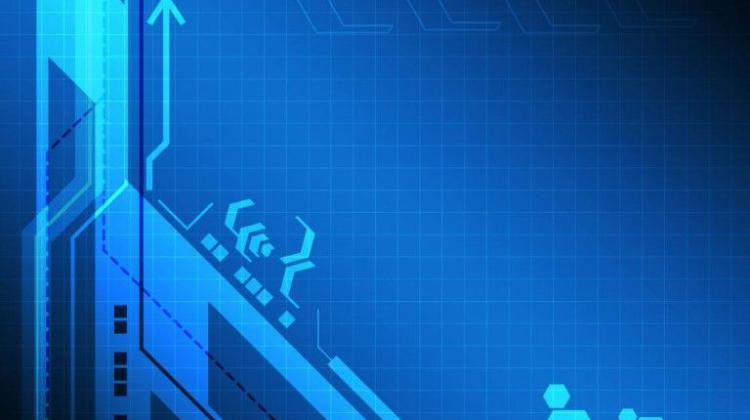93 Polish inventions at innovation fair in Brussels

System for testing the consciousness of patients in a vegetative state, locator of missing persons with Alzheimer\'s disease, pork for allergy sufferers - these are some of the 93 Polish inventions presented at the fair in Brussels.
62nd World Exhibition on Inventions, Research and New Technologies "Brussels Innova" 2013 took place from 14 to 16 November. The event hosted exhibitors from 20 countries, who presented 230 innovative solutions in medicine, computer science, chemistry, biology, electronics, mechanics, safety and security.
Among the exhibitors were many Polish inventors, including 18-year-old Mariusz Bielaszka, one of the authors of Wanted Clock - locator of missing persons who suffer from Alzheimer\'s disease or have memory problems. "I took part in the search for a person suffering from Alzheimer\'s and I saw how huge this problem was, how the relatives cried, and then I came up with the idea for this device" - said the 18 years old inventor.
Mariusz has developed an easy to use watch. When a person suffering from Alzheimer\'s is lost, the caretaker calls the number assigned to the watch and after 30 seconds he receives a response message with a link that contains the exact location. "Simply click it and you have a map" - explained Bielaszka . The watch also helps find the missing person at night. After sending a message or signal, "the watch will flash and you will be able to locate the missing person" - added Bielaszka. The device also has a medication reminder function.
At the Gdańsk University of Technology stand, inventors presented Talking Maps, Android app that helps the blind navigate the city. It was developed in cooperation with the company "OPEGIEKA". "Based on the the GPS and the phone sensor data, namely the direction of the user , the system can able a blind person, for example, by issuing voice commands, to the nearest store or bank" - explained one of the authors, Łukasz Markiewicz.
The app reads the information about passing objects, obstacles and hazards. In addition, user’s family and friends can create paths on a special social networking website. The system is already registered as a patent. At the fair, the authors were looking for foreign partners who could distribute the product in the blind community. They argue that their system could be used all over the world.
Another invention presented at the fair was the system to identify unauthorized changes in digital images. "We protect images against counterfeiting and we are able to determine which portions of the image have changed and what was there before" - said the system co-author Paweł Korus from AGH University of Science and Technology in Kraków. The system can be used by the special services, the police and insurers who collect evidence.
Grzegorz Kopecki of Rzeszów University of Technology is one of the creators of miniature control and navigation system for airborne platforms, including unmanned aircrafts. The system could be used by the police or fire department.
Prof. Andrzej W. Lipkowski from the Mossakowski Medical Research Centre PAS presented peptide analogues, new type of effective pain medication intended particularly for the treatment of chronic cancer pain. This substance not only relieves pain, but also supports the action of anticancer compounds.
At the exhibition, visitors could also visit the stand with Polish pig meat products with controlled allergenicity. According to Agnieszka Wierzbicka from the Warsaw University of Life Sciences, this is the first European food with high nutritional value, reduced calorie, salt and polyphosphates content and controlled allergenicity. The problem with allergies affects about 10 percent of the population, mainly children, and the invention is intended for them. Wierzbicka estimates that these products can be marketed next year. However, they will be about 10 percent more expensive than the usual sausages and meats.
Another system presented in Brussels was the Cyber Eye, winner of the competition "Polish Invention 2013". The system, developed by the team of Prof. Andrzej Czyżewski from Gdańsk University of Technology, tests the awareness of patients diagnosed as being in a vegetative state. The system consists of a visual tracking module that determines the point on computer monitor, at which the user is looking. "It also incorporates a brain activity analysis system that uses a special helmet with electrodes, which measures the activity of individual parts of the brain, and an odour-generating device" - said Janusz Cichowski from Gdańsk University of Technology.
Cyber Eye also contains a range of exercises for patients, in which vision is used as a computer mouse. For example, patients must use sight to choose his own name from three displayed names. The virtual keyboard subsystem allows to write and communicate with the world by looking at the screen. "If someone has a state of paralysis, which allows to move the eyes, such person could even write a book with this system" - added Gdańsk scientist Kuba Łopatka.
EUREKA competition awards have also been presented during the exhibition.
PAP - Science and Scholarship in Poland, from Brussels Julia Potocka
jhp/ krf/ mrt/
tr. RL
Przed dodaniem komentarza prosimy o zapoznanie z Regulaminem forum serwisu Nauka w Polsce.


















